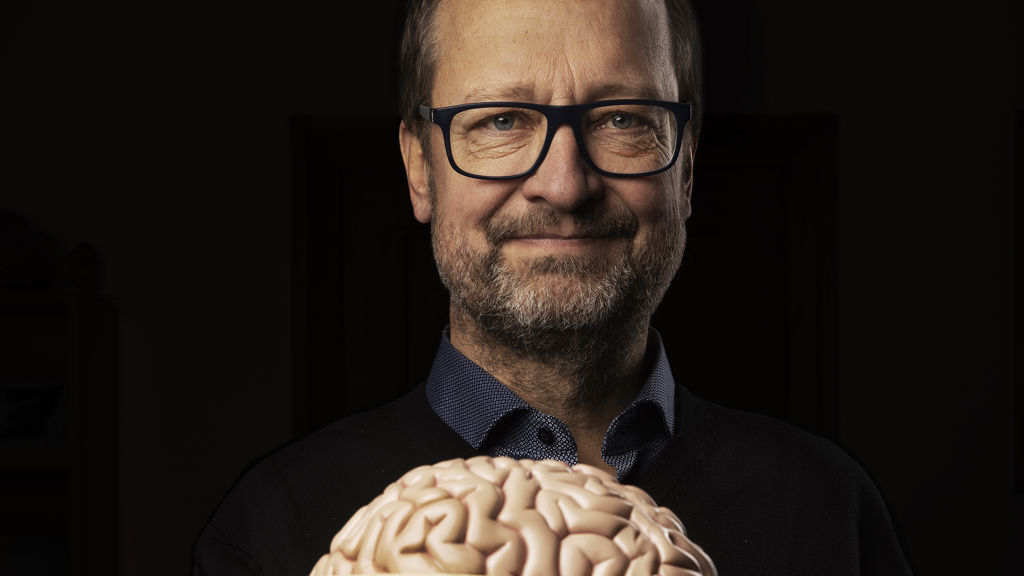Do you want to improve your memory? Then continue reading.
Most people find it annoying when they forget things. Therefore, we will provide you with a range of concrete tools and strategies to improve your memory. Because training actually helps the brain become bigger and sharper.

"A good brain is a balanced brain, where we make sure we train our memory if that is the problem, or our social intelligence if that is the problem. When we train our brain, we improve it," is his encouraging message.
Three memory boosters
If we want to improve our memory, we may look to three obvious boosters that will raise the level of our ability, says Troels W. Kjær.
"We remember what's surprising, what's relevant and what's associated with emotion. If you think: 'I can never remember my customers' personal matters,' you should try to make them relevant. Try telling yourself this: 'It's important to me that my customer lives in this type of house, because it means I may be able to provide him with a loan for this or that.’ When we want to memorise something, we have to keep thinking: 'Why is it relevant for me to remember this? Are emotions involved? Is there anything of particular surprise?'
Using a memory palace
One memory technique you may use which comprises emotion, relevance and familiarity is what Troels W. Kjær calls the memory palace, according to which you use your childhood home, for example, as a starting point and then place the things you need to memorise among familiar furniture, objects and rooms.
Troels W. Kjær used the memory palace when he was studying medicine and had to learn numerous muscles and bones by heart.
"You use your childhood home and place the first muscle by the front door, the second muscle in the hallway and hang the bones to which they are attached from the ceiling, or whatever. You simply put the things you need to memorise into a familiar setting."
The trick is to visualise it?
“Yes, that’s one way to put it. Visualisation is super important if you're a visual person, and the vast majority of people are. It makes the things you need to remember accessible in another way. At the same time, you attach emotions to it, because you have feelings for your childhood home, or another place you know really well."
Reliving the situation
Emotions are a powerful mechanism for remembering things.
"When I emphasise the memory palace, it's just one example of something you may use to improve your memory. It could also be a film you feel strongly for, and where you place the things you need to remember in the film. Or it may also be music or something else. But it should be something you know well already and which means something to you."
become better remembering
- Place the thing you need to memorise near something that is relevant to you, something which stirs up your emotions, or which is surprising
- Use a familiar setting, such as your childhood home, to place things you need to remember
- You may also use music, a film or specific situations which have stirred up strong emotions in you as a framework for what you need to memorise
- If you lose the thread, try going back to the situation you came from
Then what about the classic situation of going into the kitchen to get something, but having forgotten what it was by the time you get there?
"That's the short-term memory at play. It's characterised by being on your mind very briefly, and then disappearing. And being completely gone. In this case, the best strategy may be going back to the room you were in. Then you’ll see or relive the situation. You go into the kitchen; can't remember what you were supposed to get; go back to the sitting room and see your coffee cup: 'Ahh, I need milk...' Your short-term memory is always jogged when you relive the situation. "
Lazy brain
One thing damaging our memory is our use of smartphones. Often, we Google answers instead of trying to jog our memory. As a result, the brain misses out on some good mental gymnastics.
"It's obvious that if we’re no longer forced to remember phone numbers, events, the list of kings, presidents or whatever, because we just look up the answers, our brain becomes lazy because we do nothing to keep it fit," says Troels W. Kjær.
Take care of your brain
- Give your brain new tasks every day
- Be physically active
- Talk with other people, engage in your social network
- Eat healthy food
- Give your brain a break and zone out for 30 seconds every now and then.
- Sleep: Deep sleep constitutes your brain's washing machine, which gets rid of the waste products between the nerve cells.
Physical activity
One of the best things you can do to keep your brain fit is to exercise. Physical activity has proven to be even more important than we thought.
"We've known for years that the brain sends messages via nerves to the muscles, and then the muscles move. If the brain sends a lot of messages, the muscles move a lot and build up. What's interesting about the new research is that muscles also send messages back to the brain to grow. So it goes both ways.
Troels W. Kjær has recently published the book: “Did Einstein work out?” (Gik Einstein til Fitness). It is about how physical activity builds your brain, but also how parents' physical activity serves as a lever for the genes making their children smarter.
"Physical activity may change our own intelligence, but it may also change the genetic material so that our children will have better brains," Troels W. Kjær says.
Never too late
Finally, it should be emphasised that we are all equipped with different brains with different strengths.
"We’re pleased with some of the things our brains can do. We identify ourselves with these things. But we regret that there are other things we don’t do so well. Take people with autism. They have an excellent memory for certain things. They see and remember patterns and images, but they find it difficult to read emotions and engage in social interaction. I'm not going to single out one over the other; I just want to emphasise that we should keep in mind that we can practice what we are less good at. When we train our brain, it improves – and it's never too late."





